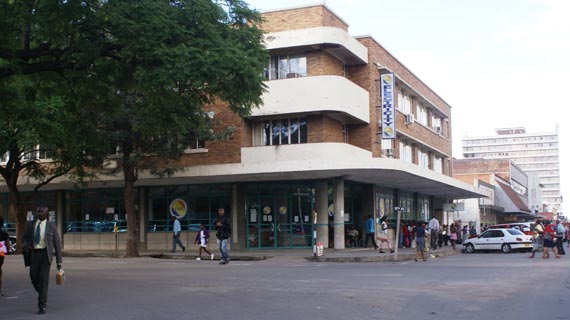
CAPTAINS of industry and commerce say erratic power supplies are proving costly to their businesses while life has become unbearable for ordinary people due to frequent blackouts.
BY OBEY MANAYITI
In separate interviews with The Standard, stakeholders and economic analysts urged Zesa and government to find a lasting solution to the power crisis which affects efforts to revive the economy. On the business side, the situation has affected mainly the agricultural and manufacturing sectors which have been on the downward spiral since the early 2000s.
“We have been talking about rising labour costs in the country. We have a situation where people came to work and spend the whole day doing nothing because there is no power, especially in industrial areas,” said the Zimbabwe National Chamber of Commerce president Hlanganiso Matangaidze.
“Those people need to be paid; where does the money come from if there is no production?”
Matangaidze said sometimes businesses worked on tight deadlines to produce goods.
“If we miss that deadline then we miss out on business opportunities and the orders might be cancelled,” he said. “The situation is bad and it cuts across the board. There is need for Zesa to find a plan to deal with the matter. The most affected areas are agriculture and manufacturing industries. If we use generators then the cost of production will go up and again it affects our business operations.”
Economic analyst John Robertson said huge damage had already been done by the erratic power supplies.
- Chamisa under fire over US$120K donation
- Mavhunga puts DeMbare into Chibuku quarterfinals
- Pension funds bet on Cabora Bassa oilfields
- Councils defy govt fire tender directive
Keep Reading
“It [load-shedding] caused the closure of many factories and it is badly increasing the cost of doing business in the country. The damage has been done and it’s preventing business to get back to normal,” he said.
“It is difficult to tell investors who want to come and set up their machinery which should run for 24 hours that they will not be able to do so because of power cuts.”
Robertson said Zimbabwe could no longer create employment, while most young people no longer saw a future for themselves. He said a majority of people were now being forced into vending because they could not find jobs.
Ordinary residents were also concerned by the frequent power cuts. Precious Shumba, the director of the Harare Residents Trust said power cuts had a net effect of increasing the cost of living on the ordinary citizens.
“The Harare Residents’ Trust has received numerous complaints concerning load-shedding in communities. The situation was worse during the last week of May and the first week of June, but the week beginning June 8 to now has been better for most communities,” Shumba said.
“The major impact has been economical — refrigerated perishable goods are going bad; milk, cheese, meat among others, the cost of firewood and other alternative energy sources has reduced the disposable incomes for most families as they have to spend money on paraffin, gas, candles and solar energy and fuel to power generators.”
He said residents were concerned that they were paying in advance for the electricity but supplies were erratic, increasing the financial burden upon their meagre earnings through formal and informal means.
Some residents said their major expenses arose from buying firewood, gas or paraffin while their social lives have been affected as most times they cannot watch television.
However, Zesa said the power utility was working tirelessly to improve the security of electricity supply, especially during this winter period.
Fullard Gwasira, the company’s spokesperson said it was important for consumers to complement the power utility by exercising various Demand Side Management (DSM) initiatives like switching off gadgets that are not in use.
“For the past two days Hwange Power Station has been running all six units, producing a total of 680MW, a feat that hasn’t occurred in the past couple of years,” said Gwasira.
“Local generation has been averaging about 1 400MW.
This is in sharp contrast with the 2009 figures where local generation was around 900MW. We have thus witnessed a steady and incremental improvement in generation over the years.
Admittedly, we are still in a deficit position. A lot has been done and more still needs to be done in order to provide better quality service that our customers deserve.”
Gwasira said Zesa was minimising power interruptions for the agricultural sector, so that winter cropping would not fail.
“In the interest of ensuring national food security and supporting the winter crop this season, the power utility is guaranteeing a firm supply of 50MW to the agricultural sector in order for them to pursue farming activities without interruption,” he said.
“However, customers must also liaise with the depots so as not to confuse faults with load-shedding. Faults must be reported timeously to ensure smooth supply. Farmers with crops suffering from moisture stress can also engage us so that we can make strategic interventions to avert crop failure.”










